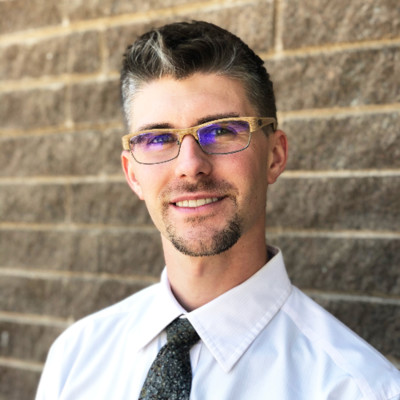 Robert Powers
Robert Powers
IEC / Co-Founder
College Torch / IECs for Human Rights (CA)
What drew you to the world of college admission counseling?
When I was a high school junior growing up in Georgia and searching for colleges, I was outwardly confident, but completely silent about my own identity as a gay young person. I eagerly listened to others’ stories and needs, but I didn’t share my own. Even now, I’m not sure how I would have asked for support back then, because I didn’t know what I needed. The thing I thought I needed was entirely unrelated: admission to a highly selective university.
When I went to college, I didn’t share my identity openly until junior year when I studied abroad and joined a community that urged me to share about myself. Almost immediately, my life changed. I didn’t just feel accepted. I felt celebrated. Until then, I felt like I’d been at a party where I’d fallen asleep on the couch and this experience woke me up. Granted, I had lost some time. I realized I had a lot to learn about myself. When I came back to campus, I felt like a “realer” version of me.
I’m an IEC specialist for LGBTQ+ students because, even with the diversity of experiences and identities within the LGBTQ+ community, I connect with these students’ stories. I love visiting colleges and imagining my students there. I usually make the LGBTQ+ resource center my first stop so I can see how the college supports its students, and then I speak to out students in order to learn about current LGBTQ+ life on campus, which can shift quickly. When I get home, I create resources so I can share what I know with students and counselors broadly.
These days, over 50 percent of my students do not identify as straight-cisgender. I don’t want LGBTQ+ students to feel like they wasted their college years fitting into a box when I know I can help them find colleges with communities that celebrate them and resources to support them with their unique needs and circumstances.
Existing silently, I lost two years of my own college experience, but now I get to help students claim theirs.
What is your favorite part of the job?
IEC work gives me a great deal of freedom and flexibility that I try not to take for granted. As often as I can, I engage in advocacy for LGBTQ+ students parallel to my consulting practice. I aim to educate student-facing professionals, families, institutions, elected officials, the media, and decision-makers about issues facing LGBTQ+ students. This matters because, in more than a few cases, education and action could spare LGBTQ+ students from experiencing real physical and emotional harm.
Last year, I co-founded a grassroots, direct-action advocacy group called IECs for Human Rights with my colleague Carolyn Caplan. Our 200+ members engage in letter-writing campaigns, present conference sessions, push for cultures of acceptance in our membership organizations, dialogue with colleges about anti-LGBTQ+ legislation and other human rights issues, and educate the public about issues like Title IX religious exemptions that endanger LGBTQ+ students on roughly 250 college campuses in the U.S.
How has NACAC played a role in your career?
NACAC has given me opportunities to share resources around my specialty. In Baltimore last fall, I led a conference session about anti-LGBTQ+ legislation. I also enjoyed writing the chapter about LGBTQ+ students for the upcoming sixth edition of NACAC’s Fundamentals of College Admission Counseling, with Dr. Tammy Johnson of Marshall University (WV) as co-author. In 2024, I plan to lead webinars and other sessions, and I’m excited to connect and collaborate with new NACAC colleagues.
I also plan to share a big project with my NACAC colleagues soon: Campus Q, a resource to help LGBTQ+ students find best-fit colleges. Campus Q hasn’t launched yet, but for now I’ve published a Resource Hub for LGBTQ+ students and their counselors — www.campus-q.com/resource-hub — which will be updated regularly.
What do you think is the biggest challenge facing our profession today?
The answer to this question is always money.
Just as some corporations receive fines, some nonprofit organizations should lose their tax-exempt status if they can’t demonstrate they’re acting fully in alignment with their nonprofit mission statements, or if they permit discrimination or harassment.
When you aren’t working, what do you like to do?
I go to my happy place…Palm Springs.
If you could be any fictional character, who would it be and why?
Ghostbuster. I love adventure.
Published Feb. 19, 2024